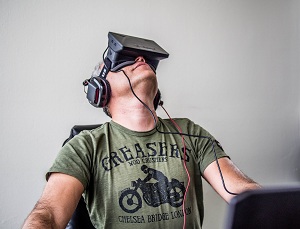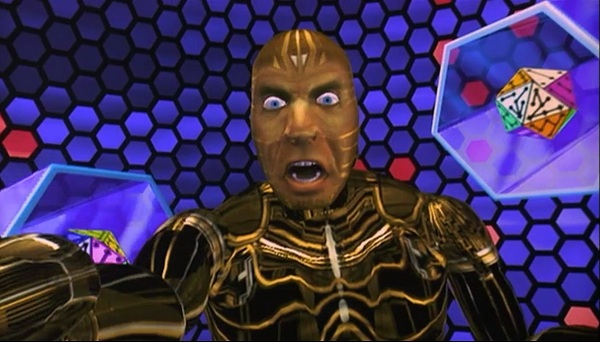Facebook has just announced that it’s buying Oculus VR, the small company behind the much-feted Oculus Rift virtual reality headset, for a combination of money and shares adding up to $2 billion.
Let’s just repeat this so it has a chance to sink in.
Facebook.
Oculus Rift.
Two billion dollars.
By the way, don’t feel bad if you just read that last bit in a Dr. Evil voice; I wrote it in one. It’s hard not to.
Facebook co-founder Mark Zuckerberg has explained the acquisition as the culmination of a long-term interest in developing VR technology for Facebook, describing the technology as possibly the next major shift in computing technology after mobile. Quoth Zuckerberg:
“Imagine enjoying a courtside seat at a game, studying in a classroom of students and teachers all over the world or consulting with a doctor face to face — just by putting on goggles in your home”
At the very least, it’ll now allow people to be literally surrounded by Candy Crush invites.
It’s a big step forward for the profile of VR, which is also being developed by Sony under the codename Project Morpheus for the PS4, and for Oculus, who before today were largely unknown outside of the gaming world. Zuckerberg has pointed out Facebook’s acquisition of Instagram to illustrate how they allow their purchased properties to operate independently, which should hopefully mean that in-development gaming projects either utilizing or being designed specifically around the Rift – such as EVE: Valkyrie and Star Citizen – won’t be affected by the purchase. VR is still an unknown quantity despite the hype, but if anything is going to push the tech into the mainstream it’s Facebook integration.
But then, Zuckerberg says this:
“By feeling truly present, you can share unbounded spaces and experiences with the people in your life. Imagine sharing not just moments with your friends online, but entire experiences and adventures.”
And I can’t help but fear a little for the human race. It’s already worrying how many people seem to use Facebook as an excuse to never socialize with others in person, and call me a crotchety old fart but I’m not sure how I feel about the idea of turning our social circles into:
UPDATE: Minecraft creator Marcus ‘Notch’ Persson has announced that he is abandoning talks about bringing Rift support to the game:
“I definitely want to be a part of VR, but I will not work with Facebook. Their motives are too unclear and shifting, and they haven’t historically been a stable platform. There’s nothing about their history that makes me trust them, and that makes them seem creepy to me.
And I did not chip in ten grand to seed a first investment round to build value for a Facebook acquisition.”
Persson was an early investor in the Rift when the peripheral – which at this stage has still not seen an official release – was at the crowdfunding stage. This isn’t the first time that a crowdfunded project has aligned with a publisher or attained private funding before reaching a releasable level of completion, but is the first time a high-profile piece of hardware has done so. This is arguably another sign that the original Kickstarter-esque model of moneyraising is simply insufficient for bigger and/or more ambitious projects, and it wouldn’t be surprising if other early backers turn out to be less than pleased with the product getting bought by the Facebook behemoth.


